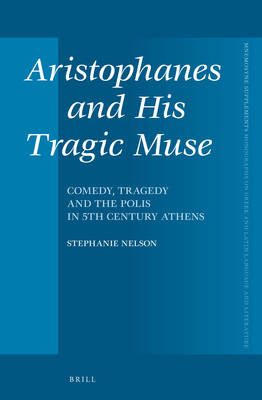
- Afhalen na 1 uur in een winkel met voorraad
- Gratis thuislevering in België vanaf € 30
- Ruim aanbod met 7 miljoen producten
- Afhalen na 1 uur in een winkel met voorraad
- Gratis thuislevering in België vanaf € 30
- Ruim aanbod met 7 miljoen producten
Zoeken
Aristophanes and His Tragic Muse
Comedy, Tragedy and the Polis in 5th Century Athens
Stephanie Nelson
€ 280,95
+ 561 punten
Omschrijving
Despite the many studies of Greek comedy and tragedy separately, scholarship has generally neglected the relation of the two. And yet the genres developed together, were performed together, and influenced each other to the extent of becoming polar opposites. In Aristophanes and His Tragic Muse, Stephanie Nelson considers this opposition through an analysis of how the genres developed, by looking at the tragic and comic elements in satyr drama, and by contrasting specific Aristophanes plays with tragedies on similar themes, such as the individual, the polis, and the gods. The study reveals that tragedy's focus on necessity and a quest for meaning complements a neglected but critical element in Athenian comedy: its interest in freedom, and the ambivalence of its incompatible visions of reality.
Specificaties
Betrokkenen
- Auteur(s):
- Uitgeverij:
Inhoud
- Aantal bladzijden:
- 396
- Taal:
- Engels
- Reeks:
- Reeksnummer:
- nr. 390
Eigenschappen
- Productcode (EAN):
- 9789004310902
- Verschijningsdatum:
- 25/02/2016
- Uitvoering:
- Hardcover
- Formaat:
- Genaaid
- Afmetingen:
- 155 mm x 236 mm
- Gewicht:
- 635 g

Alleen bij Standaard Boekhandel
+ 561 punten op je klantenkaart van Standaard Boekhandel
Beoordelingen
We publiceren alleen reviews die voldoen aan de voorwaarden voor reviews. Bekijk onze voorwaarden voor reviews.








